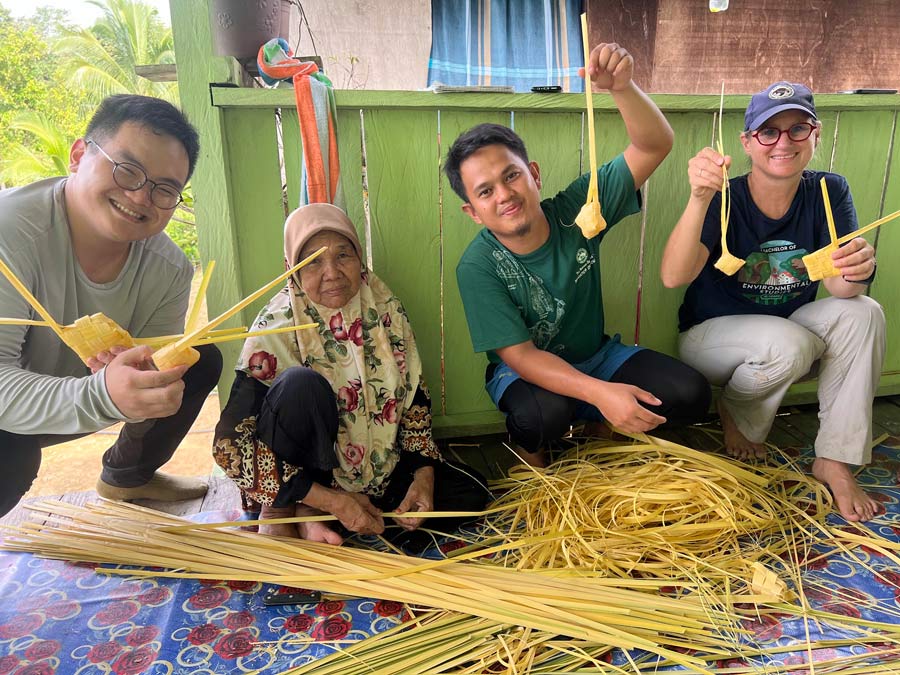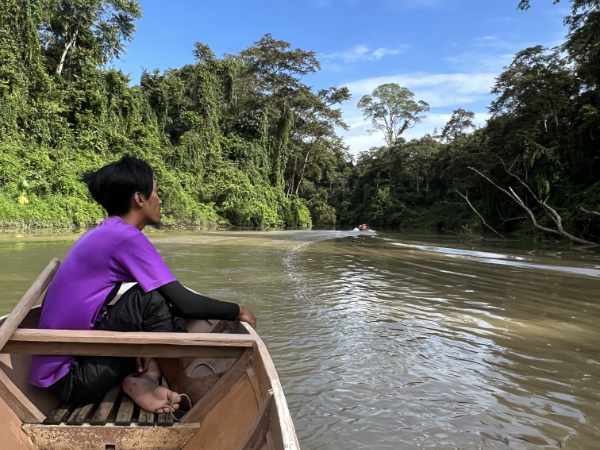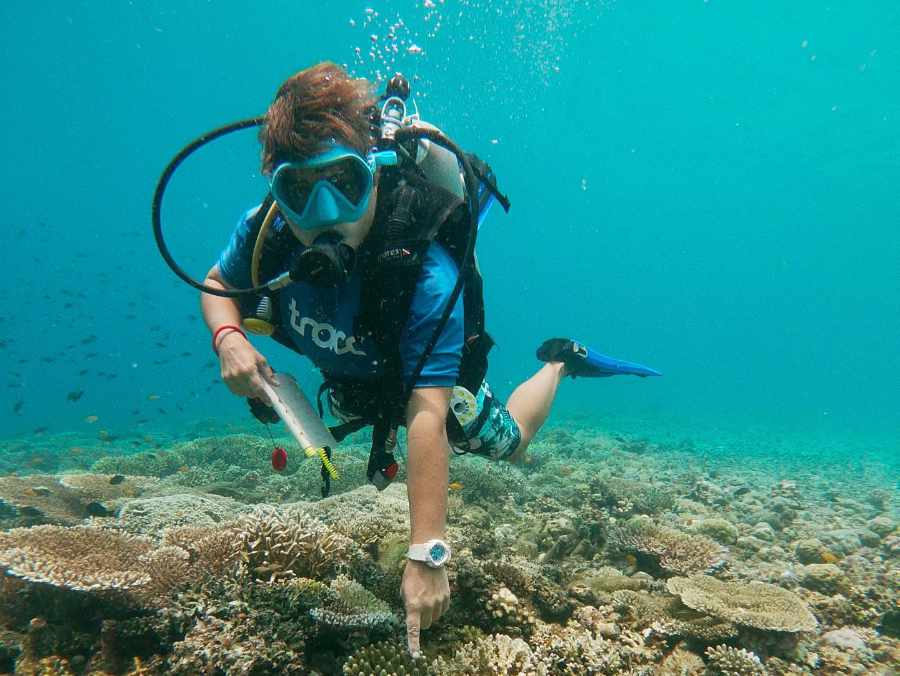Generation Restoration
At the beginning of the UN Decade of Ecosystem Restoration (2021 – 2030), we asked the question: What can we do better as restoration ecologists & practitioners during the UN Decade of Ecosystem Restoration?
Our team developed an innovative approach addressing 5 main restoration challenges, with the guidance of Dr. Gretchen Coffman who has more than 30 years of experience as a of restoration ecologist and practitioner. From “Roots to Reefs” is our novel community-based ecosystem restoration approach for the ASEAN Region, restoring forested wetlands from headwater streams to the coral reefs. To ensure the sustainability of restoration success, we propose that the following five issues must be addressed to develop sustainable restoration solutions during this decade.
- Projects are usually funded and performed by governments or large private companies with a top-down approach.
We must endeavor to use a grassroots, bottom-up approach, engaging the community in meaningful ways from start to finish to ensure stewardship and protection of these areas. We are working with and on the lookout for local restoration champions in communities to lead these efforts. - Often there is little follow up monitoring or maintenance of restoration sites.
We propose to develop simple, implementable monitoring plans that communities can carry out. We are working with communities to tailor monitoring protocols and train locals to implement them. - Restoration sites are typically small due to limited funding and not always implemented in the most strategic locations.
If we are going to succeed in this decade, we need to scale-up to a larger landscape approach. We are accomplishing this using remote sensing, LiDAR, drone sensors, and other novel tools and techniques. - Restoration projects are also typically short-term efforts due to limited and lack of resilient funding, lack of enforcement and corruption.
We are devising practical monitoring metrics and connecting with community champions who will steward their land over the long-term. Their positionality and knowledge of the local socio-economic, cultural, and ecological context gives them an unparalleled advantage. Our team provides support, training and capacity building with successful community restoration project leaders and students who are trained in restoration of this region. - Restoration funding is typically from short-term sources (2-5 years at best).
We search for and develop funding from unique, diversified and sustainable sources. Sources we target include: large restoration collaborations, app-based tree plantings, virtual tree planting events, nature-based and eco-tourism, and community products (e.g., honey from native mangrove bees).
Who we are
Team Generation Restoration is a group of youths from diverse backgrounds and fields, implementing this regional approach in Southeast Asia.



The aim of our team is kickstarting community-based restoration of damaged ecosystems, and ensuring their recovery through monitoring.
Our humble beginnings were as undergraduate students working on project groups during the pandemic under the guidance of Dr. Gretchen Coffman from the NUS Geography Department and Environmental Studies Programme. Our approach began through working on local-scale projects in Singapore, developing restoration plans and strategies for daylighting concrete waterways, and mangrove ecosystems to return vital ecosystem services back to these streams, rivers and mangrove.
We believe that healthy, functioning ecosystems are the cornerstone of sustaining the future of any society and effective ecological restoration is both the prevention and solution to further environmental degradation.
We are actively empowering community groups around ASEAN to join in the Generation Restoration movement in all ecosystems from the freshwater wetlands in the headwaters, to riparian ecosystems along rivers, all the way to the mangroves and coral reefs.
Our work revolves around the United Nations Ten Principles for Ecological Restoration through community engagement, empowering youths, ecological monitoring, nature-based solutions, integrating technology for our landscape approach, and other science-based approaches. We have developed strong partnerships within the region, with students, nongovernmental organisations, academic colleagues, restoration practitioners, community leaders, and government leaders.
We aspire to take our restoration approach throughout the ASEAN, creating a
#GenerationRestoration movement around the region!
